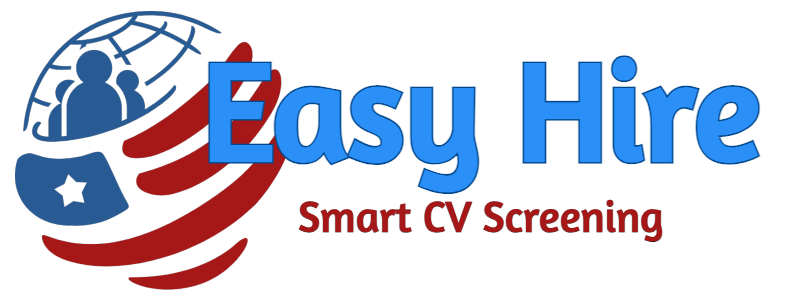How AI Streamlines the Recruitment Process: Key Benefits for Businesses
The recruitment process is a cornerstone of business success, yet it’s often plagued by inefficiencies, time constraints, and resource limitations. Enter AI recruitment process solutions—a game-changer for HR professionals, recruiters, and business owners alike. By leveraging recruitment automation, companies can transform hiring into a seamless, data-driven experience that maximizes efficiency and accuracy.
In this article, we’ll explore the key benefits of AI in streamlining recruitment, backed by research and real-world examples, and explain why businesses can’t afford to ignore this innovation.

The Recruitment Challenge: Why AI is the Solution
Recruitment has traditionally been a manual, time-intensive process. Sifting through countless resumes, scheduling interviews, and assessing candidates requires significant effort and resources. According to a study by Glassdoor, the average hiring process takes 23.8 days—a delay that can cost businesses top talent and revenue.
AI recruitment tools address these pain points by automating repetitive tasks, enhancing decision-making, and providing actionable insights. Let’s dive into the specific benefits.
Key Benefits of AI in Recruitment
Enhanced Candidate Screening
Faster Time-to-Hire
Improved Candidate Experience
Data-Driven Decision Making
Cost Efficiency
1. Enhanced Candidate Screening
AI-powered tools can analyze resumes and profiles in seconds, identifying the most qualified candidates based on predefined criteria. This eliminates human bias and ensures a more objective selection process.
For example, AI can parse keywords, assess experience, and even evaluate soft skills through natural language processing (NLP), making it easier to shortlist top talent.

2. Faster Time-to-Hire
With recruitment automation, businesses can significantly reduce the time spent on administrative tasks. AI can automate interview scheduling, send follow-up emails, and even conduct initial screening interviews using chatbots or video analysis tools.
This efficiency translates into a shorter time-to-hire, helping companies secure top candidates before competitors do.
3. Improved Candidate Experience
A positive candidate experience is crucial for building a strong employer brand. AI-driven chatbots can provide real-time responses to candidate queries, guide them through the application process, and offer updates on their status.
This personalized, responsive approach enhances engagement and leaves a lasting impression, even for candidates who aren’t ultimately selected.
4. Data-Driven Decision Making
AI recruitment tools analyze vast amounts of data to provide actionable insights. For instance, predictive analytics can forecast a candidate’s likelihood of success in a role, while talent pool analysis helps identify skill gaps and future hiring needs.
These insights empower recruiters to make informed decisions, reducing the risk of costly hiring mistakes.
5. Cost Efficiency
By automating repetitive tasks and streamlining workflows, AI reduces the need for manual intervention, saving both time and money. According to a report by LinkedIn, 67% of HR professionals believe AI saves them significant time, while 43% report cost savings.

Real-World Examples of AI Recruitment Success
Case Study 1: Unilever’s AI-Powered Hiring
Unilever implemented AI in its recruitment process to screen candidates through video interviews and games that assess cognitive and emotional traits. This approach reduced their hiring time by 75% and increased candidate diversity.

Case Study 2: Hilton’s Chatbot Experience
Hilton uses an AI chatbot named “Olga” to interact with candidates, answer questions, and schedule interviews. This innovation improved candidate engagement and reduced the burden on recruiters.

Actionable Takeaways for Businesses
- Adopt AI Recruitment Tools: Explore tools that offer resume screening, chatbot interactions, and predictive analytics to streamline your hiring process.
- Focus on Candidate Experience: Use AI to provide personalized, responsive communication that enhances engagement.
- Leverage Data Insights: Analyze recruitment data to identify trends, improve decision-making, and address skill gaps.
- Train Your Team: Ensure your HR professionals are equipped to use AI tools effectively and interpret their insights.

Conclusion: Embrace AI Recruitment for Future Success
The AI recruitment process is no longer a luxury—it’s a necessity for businesses looking to stay competitive in today’s fast-paced job market. By automating repetitive tasks, improving decision-making, and enhancing candidate experience, recruitment automation offers a host of benefits that drive efficiency and success.
Ready to transform your hiring process? Explore EasyHireapp’s AI recruitment solutions and discover how we can help you streamline recruitment for optimal results.
For more insights, check out our pillar article on AI recruitment benefits and learn how to stay ahead in the evolving HR landscape.
Frequently Asked Questions
AI recruitment tools reduce bias by focusing on objective qualifications and skills rather than demographic information. Advanced systems can be programmed to ignore factors like age, gender, or ethnicity, and instead evaluate candidates based purely on their abilities and experience relevant to the position.
While companies of all sizes can benefit from AI recruitment, those with high-volume hiring needs typically see the greatest return on investment. This includes large enterprises, rapidly scaling startups, and industries with high turnover rates such as retail, hospitality, and customer service.
Studies show that AI recruitment tools can reduce time-to-hire by 30-50% on average. Some organizations, like Unilever in our case study, have reported even more dramatic improvements, with reductions of up to 75% in their hiring timelines.
Recruiters should develop data interpretation skills, understand the basics of how AI algorithms work, and maintain a critical eye for quality assessment. Additionally, soft skills like candidate relationship building become even more important as administrative tasks get automated.
Yes, but with certain adaptations. For specialized or executive positions, AI works best as a supplementary tool rather than the primary decision-maker. AI can help identify qualified candidates and analyze their potential fit, but human judgment remains crucial for evaluating leadership qualities, cultural alignment, and specialized expertise.
